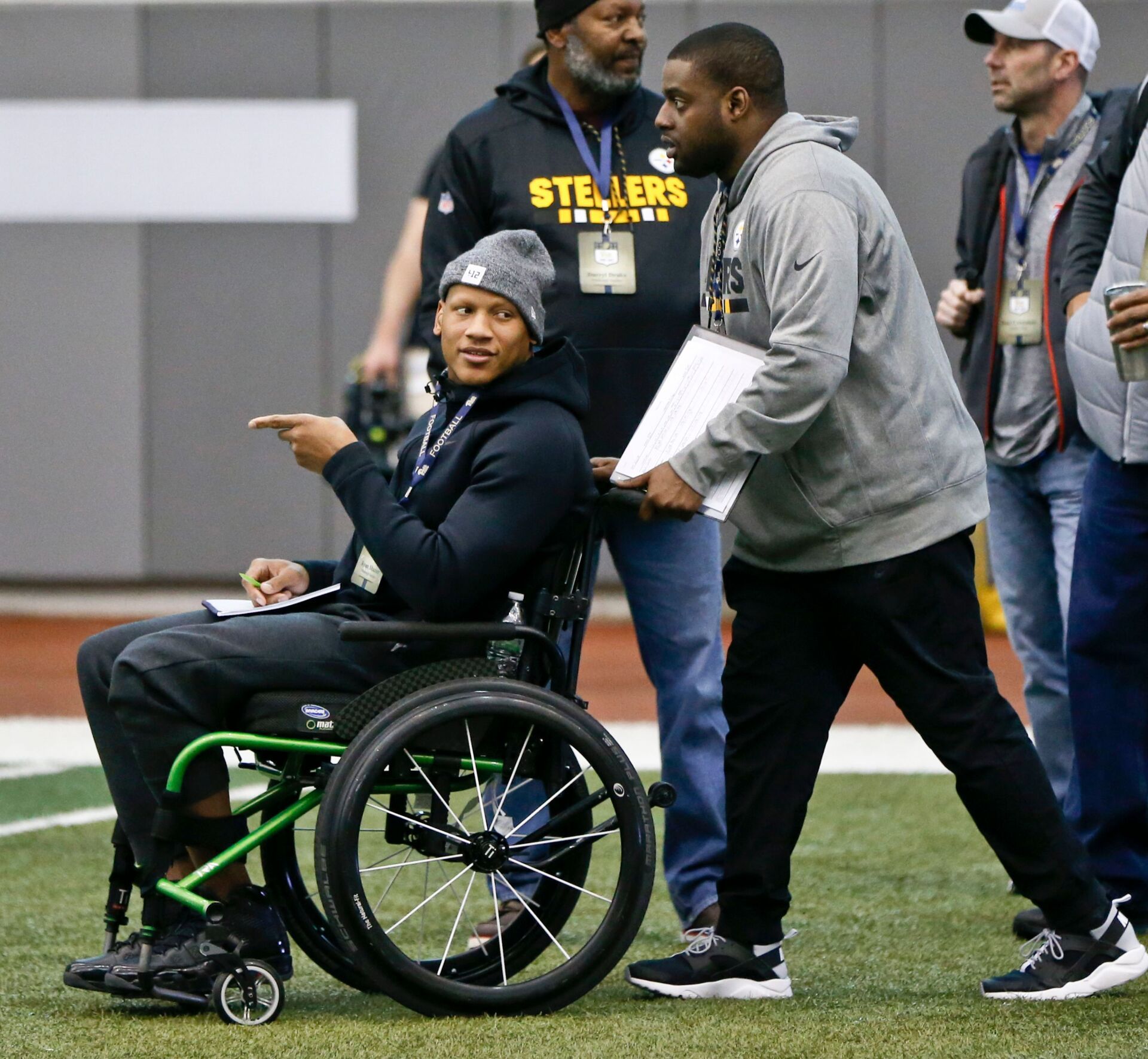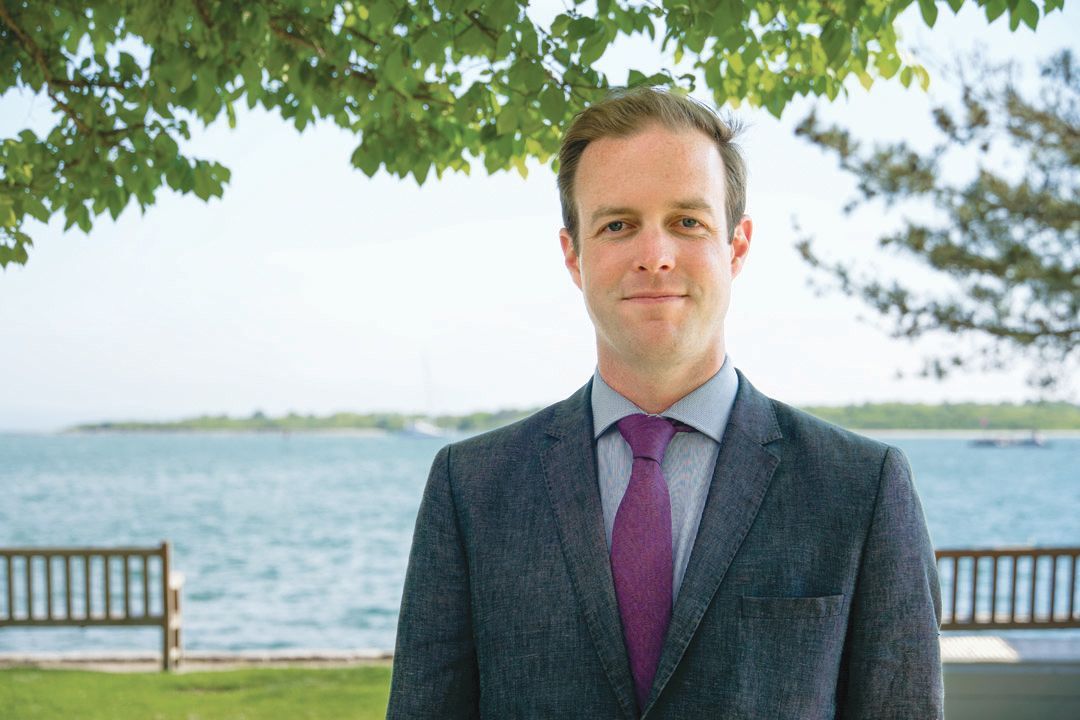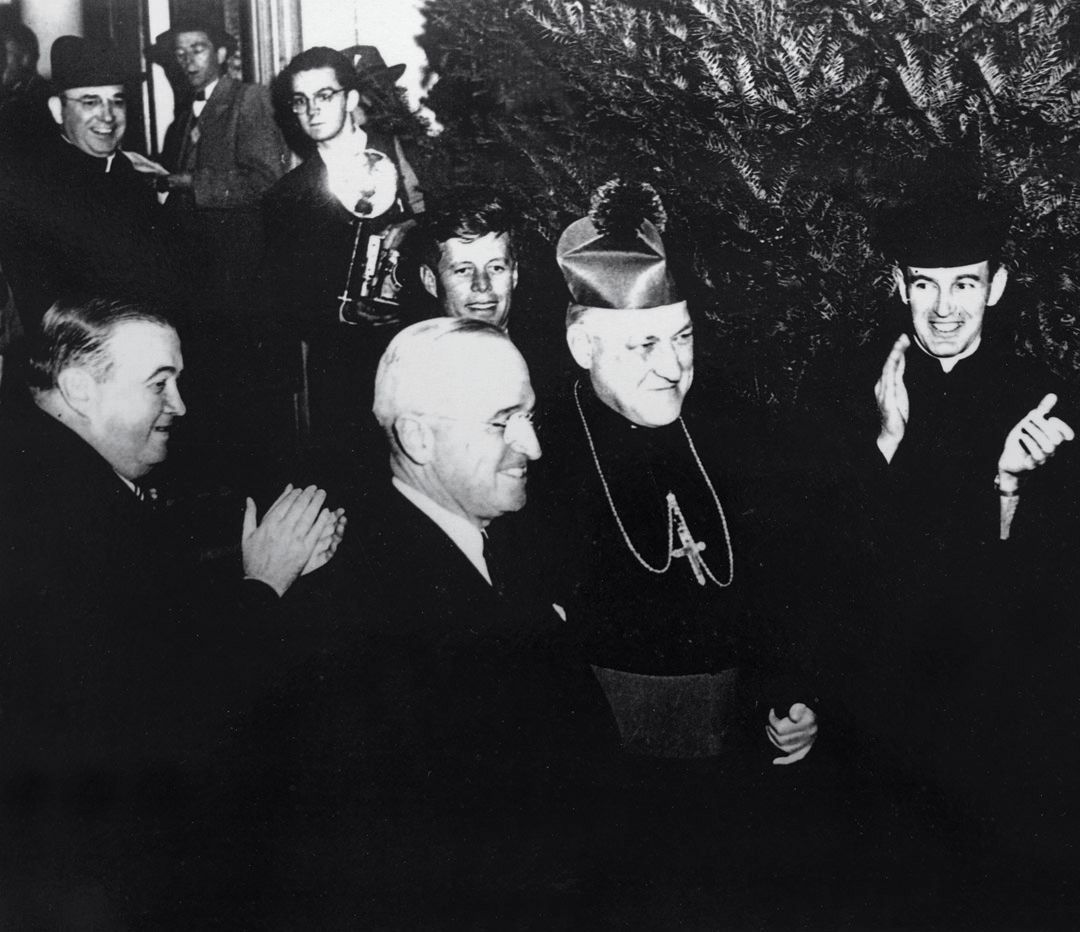HEAD CASES
Dr. Michael Lewis is pioneering a surprising treatment for traumatic brain injury.
After serving in the U.S. Military for thirty-one years, Dr. Michael Lewis has emerged as a leading expert in treating traumatic brain injury. Now the president of the Brain Health Education and Research, which he founded in 2011, Dr. Lewis has helped pioneer a revolutionary protocol that uses Omega-3 fatty acids to repair the injured brains of everyone from combat veterans to car accident victims to football players. Despite compelling studies and stories of remarkable patient recoveries, Dr. Lewis has faced a tremendous amount of resistance from the broader medical community. Dr. Lewis spoke to N Magazine about the potential of this treatment and why it has not been embraced by modern medicine.

What’s your connection to Nantucket?
My first introduction to Nantucket was when I was a physician in the Army and I used to do a lot of congressional delegation travels. Around 1998, I came up with a group of senators and congressmen for Canadian-U.S. parliamentary meetings a couple of days in the offseason on Nantucket and it was fantastic. Fell in love with it then and never had the opportunity to get back after that until just this past summer when my fiancée, who grew up on Nantucket, arranged a Make-A-Wish trip for her daughter to see the Boston Pops perform in August. And we were able to spend five fabulous days in Nantucket.
You have developed a specialty as a doctor in the military. Explain what first got your attention about brain injuries or what led you to begin to focus on this subject.
After a number of years overseas, I was sent to teach at the military’s medical school in Bethesda, Maryland. Iraq and Afghanistan were going on, and we had wounded warriors all around us. The question [of brain injuries] became a little bit more urgent. What can you do to help with these soldiers now? I went to the head researcher at the Defense and Veterans Brain Injury Center and said, “Is anybody looking at the use of omega-3s like you would get for fish oil to help our soldiers recover from traumatic brain injury?” And he thought about it for a second and he goes, “No, why don’t you?”
What possibly triggered the notion in your mind that omega-3s can be used to treat concussions and brain injuries?
The seminal event was the Sago Mine accident in West Virginia in January of 2006. There were around 13 miners trapped a mile down underground in the coal mine. By the time the rescuers reached them—more than forty hours later—there was only one guy left and barely alive. Methane poisoning, carbon monoxide poisoning. His whole system had shut down. He was inches away from death and [Julian Bailes] the neurosurgeon at West Virginia University, after attempting all the possible interventions to save him, started pouring omega-3s, fish oil, into his feeding tube. He walked out of the hospital a couple months later and has gone on to live a relatively normal life.
I assume that’s where you began thinking about omega-3s?
I heard about that story of Julian Bailes, and eventually I got connected to him and just started asking him questions about why can’t we do this for traumatic brain injury? Not long after that, I had a similar case fall into my lap when an 18-year-old kid was in a really bad car accident and the parents were told to pull the plug because he had no chance of surviving. I convinced the neurosurgeon, “Why don’t we try copious amounts of fish oil down his feeding tube?” And that kid went to his high school graduation about three months later.
What about omega-3s prompted the doctor to try them?
There are two aspects of omega-3s. A huge one is inflammation. Omega-3s can really help calm inflammation. The brain is made of fat, and there’s principally three main types of fats that are the most important. Cholesterol is a huge one, but there are omega-6 fats and there are omega-3 fats. So I believe, in a simplistic approach, what he thought to do was flood [the boy’s] body and his brain with what it took to make the brain in the first place. And that was omega-3 fats.


Explain your role in trying to spread the knowledge of the impact of this approach and why isn’t it more widespread.
Initially, because I was not a neurologist or a neurosurgeon or a biochemist, I had to relearn from medical school days what omega-3s were. Why are they important? How do they work? And so I had to seek out the people that really knew that. And it turns out, as far as omega-3s and traumatic brain injury go, there was nobody. Julian Bailes, the neurosurgeon in West Virginia, was about the only one that had done any research on it. But I also got connected with a leading researcher in Bethesda at the National Institutes of Health, and we started to look at some things. The first big publication we did was looking at whether omega-3s in the blood would be correlated to suicides in active-duty soldiers. Meanwhile, I was continuing to develop the concept of using it directly for traumatic brain injury, but not just in the ICU after a bad accident.
How so?
I had the idea that we could put omega-3s into an intravenous formulation that a medic on the battlefield of Afghanistan or Iraq could use to start that therapy as soon as possible. In fact, I ended up patenting that concept and started working with a German company to develop it commercially. So I went in about five different directions. I came up with what I call the Omega Protocol, which is the idea of a loading dose for a week or two of higher-dose fish oil for somebody who can swallow and walk and talk and then bring it down—because most people are very deficient in omega-3s. And so my idea was how do we flood the brain quickly as possible to make a difference? And the amazing things that I found out early was people notice a difference in one or two days.

So did you determine a correlation between suicide rates and low omega-3s?
It was actually profound. The lower the omega-3 levels in a soldier’s blood, the higher probability it was that the death was from a suicide. It was a very carefully done study looking at the blood levels. All the blood levels we were able to obtain had been obtained within about three months prior to somebody committing suicide. Of course, they didn’t know they were going to commit suicide at that time.

This past September, Miami Dolphins quarterback Tua Tagovailoa was suspected of having a concussion in a game, but then was allowed to play four days later and was hit again. There was a sense of outrage among the NFL Players Association because he may have had two concussions in a week.
The real simple rule of thumb is if you have any doubt there was a head injury, you always take the player out of the game. You don’t let him back in the game. And generally, we know that it takes a good two weeks for the head to recover in just a mild injury, let alone one that’s a little more severe. But to let somebody back in a game four days later, this was the worst-case scenario.
Have you ever been involved in treating a football player sidelined by severe injury?
Ryan Shazier, probably the best linebacker in the game at the time, tackled a receiver coming across the middle and didn’t get up. Something happened in his neck that he was paralyzed from that moment. I texted the Steelers’ longtime neurosurgeon Dr. Joe Maroon—if you saw the movie Concussion, he was one of the characters in that film—“You need to get him on a really high dose of fish oil right away.” Joe was out of the country at the time, but a couple days later he called me up and asked, “How much again?” I put people on nine grams of fish oil to start, but Ryan Shazier said, “No, I’m taking more.” He was taking 40 grams of fish oil right away. That was one of the things that literally got him off the table and got him walking again.
We see football suicides like Junior Seau and others. I know Boston University has a big center that analyzes the brains of players that have died prematurely. When they do these post-mortems, do they track whether all these players have low omega-3s?
As far as I know, they do not track it. I’ve proposed it a variety of different times and different studies. I’ve been doing this about fifteen years now. First of all, no pharmaceutical company, no nutritional company’s ever going to be interested in spending the millions of dollars to get the science settled on this because you could buy fish oil anywhere. It has that generic problem. But you would think that the government would have an interest. We’re talking about nutrition. We’re talking about something that’s essential for the body and the brain to function.
You’ve been met with a lot of resistance?
The resistance from the medical field and the scientific community has been nothing short of amazing. I was literally told by the military medical school if I wanted to continue the line of research on omega-3s that I needed to go somewhere else; they would not support me. And it was because I had a five-cent solution to a problem that they were getting tens of millions of dollars a year to study.

Outside of traumatic brain injury, do you think omega-3 can be helpful in depression, Parkinson’s disease and strokes? Is there a broader application?
That’s not just my opinion. There’s some very good science that has been done to look at everything from ADHD as an example, or the role that omega-3s may play in depression and other mental health issues. Almost every one of the studies is dramatically positive. It all makes sense to me as to why. Underlying most disease processes, the brain is not exempt from this inflammation. Omega-3s are one of the best ways we can go about bringing down or decreasing inflammation and treating a lot of symptoms, whether it’s from a traumatic brain injury or PTSD or depression or ADHD.
Latest Stories






